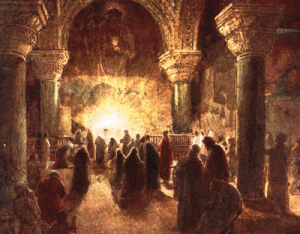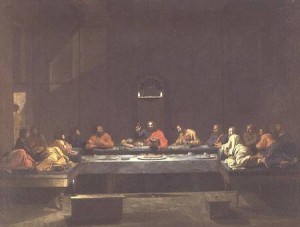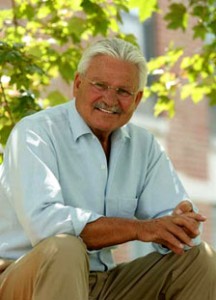
Public Worship Is For God Not People
“Worthy is the Lamb who was slain, to receive power and wealth and wisdom and might and honor and glory and blessing!” And I heard every creature in heaven and on earth and under the earth and in the sea, and all that is in them, saying, “To him who sits on the throne and to the Lamb be blessing and honor and glory and might forever and ever!” And the four living creatures said, “Amen!” and the elders fell down and worshiped.
Rev 5:11-14 (ESV)
The public worship of the church is a prayer of praise and thanksgiving directed, not to people, but to God. This approach is a paradigm shift from the current presentational notion of worship. Today worship is frequently seen as a presentation made to the people. . . . But the ancient church did not design (a contemporary word) worship to reach people, to educate people, or to heal people. Yet in their worship, which was a prayer of praise and thanksgiving offered to God, people were indeed led into contemplation of God’s mighty acts of salvation and stimulated to live a life of participation in the life of God in the life of the world. The point is, of course, that how we pray shapes who we are.
Robert E. Webber, Ancient-Future Worship: Proclaiming and Enacting God’s Narrative (Grand Rapids: Baker Books, 2008), 161-162.


